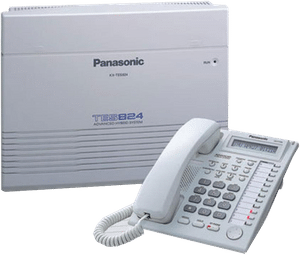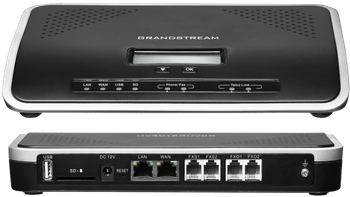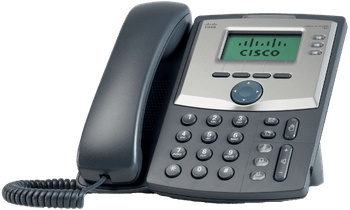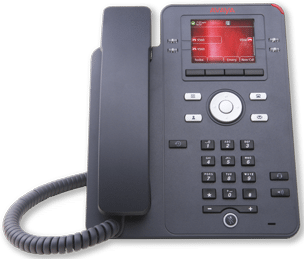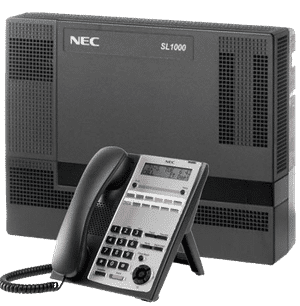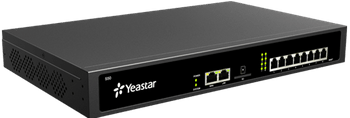PABX Installation Dubai
PBX stands for Private Branch Exchange, which is basically a business telephone system that allows calls to be “exchanged” (or switched) between different “branches” (or lines) within a business. Contact only reliable telephone installation companies in Dubai if you want to install high-quality business telephone systems for your office in the UAE.
The term PBX originated with call switchboards of the past, where operators would manually switch calls to the correct line or extension by unplugging and plugging cords. As technology evolved, machines took over the actual switching of phone lines, but the term PBX still refers to a telephone system that allows calls to be “exchanged” between different “branches” (or lines) within a business. This process is simply handled digitally now instead of manually.
What is an IP PBX?
An IP PBX is a phone system that operates over the Internet (or Internet Protocol, “IP”) as opposed to traditional analog phone lines. IP PBXs generally cost less and provide as good or better quality as traditional landlines, plus they’re typically capable of providing advanced phone system features like mobility, call routing, conferencing, and more.
There are two basic types of IP PBXs: On-premise and hosted/virtual. Let’s look at each of these types of IP PBXs and how they can benefit your business or organization.
On-Premise IP PBX
An on-premise IP PBX is simply a phone system in which the hardware and components that actually power the phone system are kept on-site at the location where it is being used. This is what comes to mind first for many people when they think of a PBX.
IP PBXs can save businesses money, time, and IT resources, and they also have the added benefits of increasing flexibility, scalability, and ease-of-use. Those are the benefits of all IP PBXs regardless of deployment type.
But what about the benefits of on-premise solutions in particular? Here are a list of a few benefits you can expect from an on-premise IP PBX:
- No risk of fee increases
- Lower total cost of ownership especially as the system grows
- Complete control and flexibility—you can even switch solutions or mix-and-match
- You can do what you want with your equipment—ultimate flexibility
- You will know your system’s capabilities since you are handling its deployment
Now let’s look at hosted and virtual PBXs and the benefits that they can offer.
Hosted IP PBX/Virtual PBX
A hosted IP PBX is basically a phone system where the actual hardware for the phone system lives (or is “hosted”) someplace off-site instead of within a business’s physical location.
Hosted phone systems are often called “cloud” phone systems because the phone system components that would normally reside on-site are now being hosted in the “cloud” - which is simply on a server that is located someplace else and is accessed over the internet.
A virtual PBX is typically thought of as another name for a hosted PBX. Think of a virtual PBX as a virtual version of a phone system. In other words, it’s a complete “virtual” phone system where most of the phone system hardware lives someplace other than your actual place of business (typically at a data center or “cloud” center, which is why virtual PBXs are often called hosted or cloud PBXs).
What’s great about a virtual PBX, or hosted PBX, is they can (and should) include all the features of an on-premise VoIP phone system without the commitment or upfront investment that accompanies on-premise PBXs.
Traditional Analog PBX Phone System
These systems have been around for a long time and connect to the Public Switch Telephone Network (PSTN) over Plain Old Telephone Service (POTS) lines. The PBX manages calls between phones and fax machines by being physically connected to them over copper wiring. Incoming calls are routed through the PBX and out to the phones, and calls can be transferred between phones via the PBX. The PBX itself typically lives in an office's telecom closet.
The key to an analog PBX is that it connects to POTS lines that pre-date the Internet. These systems are not capable of many modern-day phone system features, such as voicemail-to-email, and they cannot deliver high definition voice calls.
On Premise IP PBX or VoIP PBX
With the gradual replacement of copper lines with broadband Internet, Internet Protocol (IP) PBXs are the most common systems used in enterprises. Although it is still possible to purchase analog systems, it is certainly not desirable as they are not expandable or upgradeable. They require adapters in order to work with VoIP or other digital hardware.
An IP PBX delivers voice calls over the Internet, otherwise known as VoIP. A premise-based IP PBX is a VoIP-based phone system that is housed within the office, also typically in a telecom closet. (It looks like a server with a bunch of wires.) Instead of physically connecting to the PBX with copper wiring, phones connect to the PBX over an office's Local Area Network (LAN), often leveraging the same Internet connectivity that your office computers do.
Because they leverage the Internet, IP PBXs are capable of high definition audio and many other sophisticated PBX features, such as call queuing, flexible business hour rules, and application integration, interchanging with other unified communications and CRM platforms.
Quite a few enterprises use on premise IP PBX systems. But beyond the office's PBX and LAN, there's one more component to make the phones work: Primary Rate Interfaces (PRIs) or SIP Trunking service. These are services a business can buy to connect their on premise IP PBX to the Public Switched Telephone Network. That way, the business can make calls to and from their office to the outside world.
If you haven't gathered yet, to maintain an on-premise IP PBX, you will need the help of an IT professional. The costs associated to an on-premise IP PBX include: equipment (PBX and phones), SIP Trunking or PRI service, and the IT professional's time to deploy and maintain the phone system.
Hosted PBX or "Cloud Phone System"
A hosted PBX (or Virtual PBX) service takes the phone system out of your telecom closet and puts it "in the cloud." In other words, hosted PBX is a VoIP-based PBX that is maintained by a service provider and allows businesses to connect to it over the public Internet. For the customer, this eliminates PBX maintenance costs, the hassle of upgrading PBX software, and service downtime, because all these issues are handled by the service provider.
The hallmark of this approach is low upfront capital expenditure, making it often the best fit for small and medium sized businesses. Most hosted PBX providers do not require customers to purchase any equipment beyond IP phones. In case you were wondering, the SIP Trunking service (connectivity to the PSTN) is also handled by the hosted PBX provider— If you make a phone call via a hosted PBX provider, the call will travel over the Internet to the provider, and then back out to the PSTN.
Many hosted PBX providers offer browser-based administrative portals that give account owners full control over how the phone service is used in the office. Customers can add phones, extensions, users, and applications (such as Music on Hold and ACD queues) easily with a few mouse clicks.

